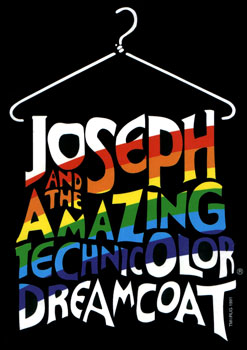A sermon from Evensong 1 September: Isaiah 33:13-22 and John 3:22-36
Writing in one of today’s papers, Johanna Thomas-Corr writes: ‘The hoopla around the lunch of Margaret Atwood’s The Testaments is more reminiscent of the unveiling of an iPhone or something Pokémon related that that of a mere book’.
The Testaments is the long awaited sequel to The Handmaid’s Tale: a dystopian novel which has gained a new audience as a restful of its Emmy award winning TV adaptation. It’s the most borrowed book from London libraries; sales have increased 160% since the title of its swap was revealed.
It tells of ecological disaster; the dismantling of democracy; the erosion of women’s rights. It was chilling when it was published 34 years ago; now the red-clocked handmaidens with their white bonnets stand as a symbol of women’s resistance.
There’s something prophetic about Atwood’s work: she’s described as being before her time but perhaps that’s precisely because she’s so attuned to the dynamics and pressures of the world we live in. As Thomas-Corr’s profile peace puts it: ‘if there’s something that interests her about humanity, she’ll write about it.'
Isaiah, as we’ve noted in recent weeks, is also alert to the dynamics and pressures of his own world. He notes the way power shifts and discerns where false hopes lie. He calls out the lies and smooth words. He names those things which are illusory or which will lead to death and destruction.
Yes, he is interested in humanity; but that’s not all he speaks and writes about.
He speaks about humanity in relation to the world - but that is shaped by his primary commitment to the words and commandments of God.
He names the ways of the godless: the evil doers; the reckless; and the sinful: who despise the call to justice and mercy.
He names the ways of the righteous: those who aren’t susceptible to bribes; who do not profit from oppression; who speak of what is right and hesitance themselves from evil.
He names the ways of the Lord: who will judge and rule and save; whose majesty is to be acknowledged; who commandments are to be understood.
Jerusalem is to be the quiet habitation of the Lord: restored and rebuilt that God’s people might be healed and built up.
Isaiah spoke in later chapters of God’s messiah; the suffering servant. It is this one, chosen and beloved, who will dwell with us in the habitation of our flesh.
John the Baptist was interested in the stuff of humanity: naming our need to turn to God; to find hope, forgiveness and a new beginning.
John also names the stuff of God: knowing that he was not the Messiah, but the one going ahead to prepare the way. The one who captured imaginations, aroused curiosity and made our hearts and mind receptive to the Lord’s beloved Son.
His joy was fulfilled when he sees his beloved cousin on the banks for the Jordan: he baptised him in solidarity with the fragility and potential of our human condition.
He beholds him afresh today: knowing that he must decrease for God’s Son to increase. He points others to him.
He points to this one who is above all; who abides with the Father.
He points to this one who knows the earth; who is flesh of our flesh.
He points to this one who will give the Spirit measure upon measure.
This is our Lord.
The Word who gives voice to our hopes and our salvation.
This Word is beloved of the Father.
Humanity is of interest to this Word.
Our Lord sees us and loves us.
We abide in the hands of this one.
In ecology, democracy and feminism: the words of the Word challenge us.
Our Lord calls us to obedient love.
Moment by moment, this love calls us to live lightly and intensely.
Calling us to speak and to act: for the sake of the eco-systems of which we’re apart; for the sake of our social and political life; for the sake of the equitable treatment of women and men.
This Word is heaven touching earth; and raising earth to heaven.
His Spirit leads us to echo the prophetic cries for mercy, justice and truth.
That we too may give word to that which builds up and renews.
We do so in the assurance that in this Word of love, even death is but the beginning of life.
© Julie Gittoes 2019







